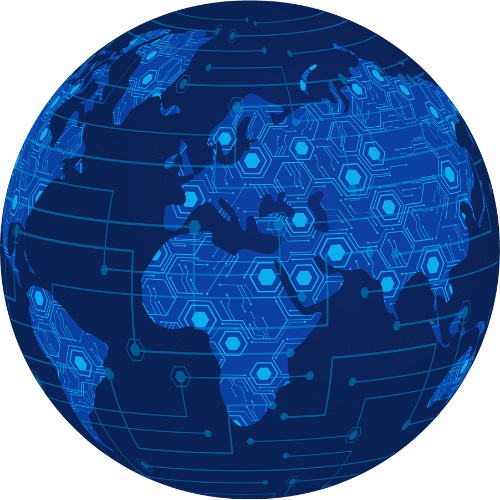In the realm of business and technology, the terms “services” and “solutions” are often used interchangeably, yet they embody distinct concepts that cater to different needs. Services refer to intangible offerings that provide value through expertise, support, or functionality. These can include consulting, maintenance, customer support, and various forms of professional assistance.
For instance, a cloud service provider may offer data storage and management services, allowing businesses to access and utilize their data without the need for physical infrastructure. On the other hand, solutions are comprehensive packages designed to address specific problems or challenges faced by organizations. Solutions often combine multiple services, products, and technologies to create a cohesive answer to a particular issue.
For example, a cybersecurity solution might integrate software tools, hardware devices, and ongoing monitoring services to protect an organization from cyber threats. This distinction highlights that while services are components of value delivery, solutions represent a holistic approach to problem-solving.
Key Takeaways
- Services are activities performed to meet a specific need, while solutions are the end result of those activities.
- The key difference between services and solutions lies in the level of customization and problem-solving involved.
- The benefits of services include flexibility, customization, and the ability to address specific needs.
- Solutions offer benefits such as efficiency, scalability, and a more comprehensive approach to problem-solving.
- Choosing between services and solutions depends on the specific needs and goals of the organization or individual.
Key Differences Between Services and Solutions
The primary difference between services and solutions lies in their scope and purpose. Services are typically focused on delivering specific tasks or functions, often on an ongoing basis. They are characterized by their operational nature, where the emphasis is on execution and support.
For instance, a managed IT service provider may offer network monitoring as a service, ensuring that systems run smoothly and efficiently without necessarily addressing broader organizational challenges. Conversely, solutions are more strategic in nature. They are designed to solve particular problems or fulfill specific needs within an organization.
Solutions often require a deeper understanding of the client’s objectives and challenges, leading to tailored offerings that may include a combination of services, products, and technologies. For example, a business looking to improve its customer relationship management might invest in a CRM solution that encompasses software implementation, training services, and ongoing support. This strategic focus differentiates solutions from the more transactional nature of services.
Benefits of Services
One of the primary benefits of services is their ability to provide specialized expertise without the need for organizations to develop these capabilities in-house. By outsourcing certain functions, businesses can leverage the knowledge and skills of professionals who are dedicated to specific areas. For example, hiring an external marketing agency allows a company to access cutting-edge strategies and insights that may not be available internally, ultimately enhancing its market presence.
Additionally, services often offer flexibility and scalability.
Organizations can adjust their service levels based on changing needs or market conditions.
For instance, a company may choose to scale up its customer support services during peak seasons or product launches without committing to permanent staffing changes.
This adaptability enables businesses to respond quickly to fluctuations in demand while maintaining operational efficiency.
Benefits of Solutions
| Benefits | Solutions |
|---|---|
| Cost-effective | Reduces expenses and increases savings |
| Efficiency | Improves productivity and streamlines processes |
| Scalability | Adaptable to business growth and changing needs |
| Security | Protects data and minimizes risks |
| Customer satisfaction | Enhances user experience and loyalty |
Solutions provide a comprehensive approach to addressing complex challenges faced by organizations. One significant benefit is their ability to integrate various components into a single package that aligns with the organization’s goals. This integration can lead to improved efficiency and effectiveness, as all elements work together seamlessly.
For example, an enterprise resource planning (ERP) solution consolidates various business functions—such as finance, HR, and supply chain—into one system, streamlining processes and enhancing data visibility. Moreover, solutions often come with a higher level of customization compared to standalone services. Providers typically work closely with clients to understand their unique requirements and tailor offerings accordingly.
This personalized approach ensures that the solution not only addresses immediate needs but also aligns with long-term strategic objectives. As a result, organizations can achieve greater value from their investments in solutions compared to more generic service offerings.
When to Choose Services Over Solutions
Choosing services over solutions is often appropriate when organizations require specific expertise or support for ongoing tasks without the need for a comprehensive overhaul of their systems or processes. For instance, a small business may opt for IT support services to manage its network infrastructure rather than investing in a complete IT solution that includes hardware upgrades and software implementations. In such cases, the focus is on maintaining operational efficiency rather than addressing broader strategic goals.
Additionally, services may be preferable when organizations are looking for flexibility and cost-effectiveness. Engaging in service contracts allows businesses to scale their operations up or down based on current needs without committing to long-term investments in technology or personnel. This approach is particularly beneficial for startups or companies experiencing rapid growth or seasonal fluctuations in demand.
When to Choose Solutions Over Services
In contrast, solutions are ideal when organizations face complex challenges that require a multifaceted approach. For example, a company struggling with supply chain inefficiencies may benefit from an integrated logistics solution that encompasses inventory management software, transportation services, and analytics tools. In such scenarios, a solution provides a comprehensive framework for addressing the underlying issues rather than merely treating symptoms.
Furthermore, organizations should consider solutions when they seek long-term strategic advantages rather than short-term fixes. Investing in a tailored solution can lead to significant improvements in productivity, customer satisfaction, and overall business performance. By aligning technology and processes with organizational goals through a well-designed solution, companies can position themselves for sustained success in competitive markets.
Integrating Services and Solutions for Maximum Impact
The most effective approach for many organizations involves integrating both services and solutions to maximize impact. By leveraging the strengths of each offering, businesses can create a robust framework that addresses immediate needs while also positioning themselves for future growth. For instance, a company might implement a comprehensive CRM solution while simultaneously engaging customer support services to ensure smooth adoption and ongoing assistance.
This integration allows organizations to benefit from the specialized expertise provided by services while also addressing broader strategic objectives through solutions. By fostering collaboration between service providers and solution architects, businesses can create synergies that enhance overall performance. Ultimately, this holistic approach enables organizations to navigate complex challenges more effectively while remaining agile in an ever-evolving marketplace.
FAQs
What are the key distinctions between services and solutions?
Services are intangible products that are provided to customers, while solutions are a combination of products and services that are designed to solve a specific problem or meet a particular need.
What are the benefits of services?
Services provide intangible value to customers, such as expertise, knowledge, and support. They can also be customized to meet specific customer needs and are often more flexible than solutions.
What are the benefits of solutions?
Solutions combine products and services to provide a comprehensive answer to a customer’s problem or need. They can offer a more holistic approach and are often more scalable and efficient than services alone.
When should one choose services over solutions?
Services are a better choice when a customer needs personalized, flexible, and ongoing support, expertise, or advice. They are also suitable for situations where the problem or need is not well-defined or requires a high degree of customization.
When should one choose solutions over services?
Solutions are a better choice when a customer needs a comprehensive, scalable, and efficient answer to a specific problem or need. They are also suitable for situations where the problem or need is well-defined and can be addressed with a standardized approach.
How can services and solutions be integrated for maximum impact?
Integrating services and solutions can provide customers with the best of both worlds – personalized support and expertise combined with a comprehensive, efficient answer to their problem or need. This integration can result in a more holistic and effective approach to meeting customer needs.




